
Surviving the Flood - How Data Centres and the Internet Must Face Climate Change
• 5 min read
As the world gets warmer and the tides continue to rise, the Internet as we know it is going to have to adapt in order to face the risks of climate change.

Articles
Likes on articles
George Michaelson is currently APNIC's senior R&D scientist. Recently, he has been working on long-baseline IPv6 and DNS statistics using Internet-wide end-user measurement, services logging, audit and analysis, and design and implementation of the Internet Number Resource Certification framework. George is a member of the BCS, and a founder member of the Australian chapter of the Internet Society. He participates regularly in IETF standardisation meetings, and co-authors Request For Comment (RFC) documents, technical drafts, and conference and peer-review papers. George graduated from York University in 1982 with a BSc in Computer Science. His career in the United Kingdom and Australia has pursued research and development in computer science, networking, and systems administration.

• 13 min read
There are five RPKI Trust Anchors, one for each RIR. But if one of these trusted operators were coerced into falsely issuing a certificate, there's no way relying parties could avoid being misled. Geoff Huston talks about the adopted approach to RPKI Trust Anchors and how things might be improved.
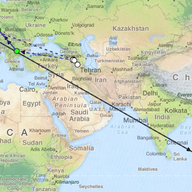
• 11 min read
In this article we compare RIPE Atlas deployment against user population estimates provided by APNIC to see which eyeball networks are missing out on RIPE Atlas probes.
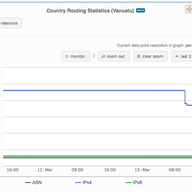
• 3 min read
While the cyclone Pam is battering the South Pacific, we're monitoring how this affects Vanuatu.
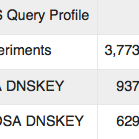
• 23 min read
Yes, that's a cryptic topic, even for an article that addresses matters of the use of cryptographic algorithms, so congratulations for getting even this far! This is a report of an experiment conducted in September and October 2014 by the authors to measure the extent to which deployed DNSSEC-valid…
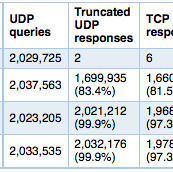
• 28 min read
In this article we are looking at possible ways to prevent denial of service attacks. One solution could be to use TCP instead of UDP for large DNS responses. We conducted an experiment to find out what the resolution failure rate would be.
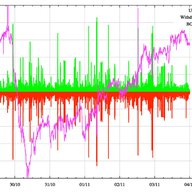
• 14 min read
The Internet has managed to collect its fair share of mythology, and one of the more persistent myths is that from its genesis in a cold war US think tank in the 1960's the Internet was designed with remarkable ability to "route around damage."

• 12 min read
Some years ago a report was published that ranked countries by the level of penetration of broadband data services. This ranking of national economies had an electrifying impact on this industry and upon public policies for broadband infrastructure in many countries. What if we did the same for IPv…
Showing 7 article(s)